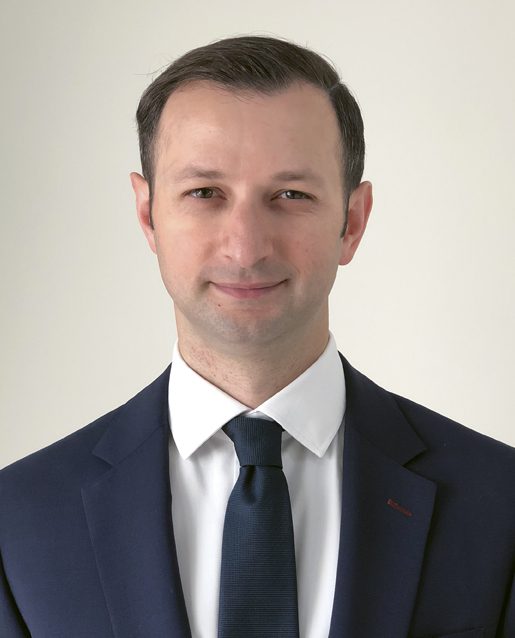Insurtech startup brings simplicity to new business and renewal data gathering
Insurtech continues to dominate the conversation in industry circles. Often, these discussions—and related initiatives—focus on disintermediating agents and finding ways to go directly to consumers. But that’s not always the case. Some startups, including Indio Technologies, exist to support local agents.
“We believe the agent channel is extremely valuable,” says Michael Furlong, Indio founder and CEO. “Agents and brokers give a lot of helpful advice and have strong relationships. If we can empower agents with the modern tools like other insurtech companies are building but let them remain the main point of contact as the insurance expert, they’ll win.”
The Indio offering is designed to contribute to that win. “Basically, we provide insurance agencies an agency-branded online platform they can use with their clients to collect application and renewal data,” Furlong explains. “Think about how commercial insurance works; you have all of these different carriers, wholesalers, and non-admitted providers, and each has a unique set of data to be collected. ACORD covers, perhaps, 30% to 50% of that, but there’s a ton of carrier supplemental information; there are lists and schedules that live in Excel.
“When a business applies for the first time, or when they renew,” he adds, “they have to fill out all these forms and workbooks; it’s a very manual and inefficient process that happens over email, and there’s tons of repeat data fields across carrier forms. We digitize all of the different carrier supplemental forms, as well as ACORD forms, and provide a secure link the agent can send to clients. The link directs them to an attractive, client-specific digital smart form they fill out.”

—Michael Furlong
Co-founder
Indio Technologies, Inc.
Customer and agency benefits
Furlong says it offers “a much better client experience, because the insured gets a beautiful online platform where they can fill out all of their business and insurance information.” The platform questionnaire is smart; customers need only provide info once, and they’re not asked to share info that’s not needed. Clients can leave comments on any field they want—perhaps they’re unsure of something or have a question—and they can share forms with other departments who may have relevant information. Online signature functionality is built into the process; documents can be uploaded for the submission; and transmitting the form to the agency involves a single click.
It also offers a much more efficient way for producers, account managers and CSRs to work, because “they don’t have to manage all of these papers, perform unnecessary manual work, and rekey data,” Furlong says. “They just use the system and Indio maps all of the fields between carrier apps.” Agency staff can export client data to hundreds of carrier supplemental PDFs.
Indio maintains a library of forms and will digitize any that currently are unavailable. Agencies can customize forms they send clients and, once their clients get the form, intelligent activity tracking lets the agent know when clients log in, fill out information, sign forms, and submit data. Furlong says that having all client and broker system actions logged and time-stamped means you always know who filled out and submitted each part of a form; this can help minimize E&O risks.
“In developing the platform,” he recalls, “we spent a lot of time listening to agents.” As development progressed, conversations continued. “We sat with agents and shared what we were doing and they said, ‘Yes, this would be great. It would help differentiate me from the competition, it would make me more efficient, and it will really help me move into the digital age.’”
User experience
Erwin Insurance Agency, a 10-person Jacksonville, Florida-based firm with an office in New York City, uses Indio for new business data gathering. “It’s funny,” recalls agency Managing Principal Judson Norton, who purchased the now-55-year-old family agency in 2015, “but as we were trying to bring efficiency to our internal agency application process, we were looking to build something similar to what Indio offers. Then I ran into one of Indio’s co-founders at the NetVU Conference and he told me about what they were doing. I said, ‘If you guys are ready, we’ll sign up right away.’” Indio was. And Erwin did.
The agency’s commercial lines producers use the platform. “It’s been a success since day one; we absolutely love it,” Norton explains. “When talking about designing something ourselves, we were simply thinking about streamlining the application process. After just a few months using it, we reflected a bit and realized there were even more important benefits.
“First,” he says, “it’s a really good way to objectively qualify a new prospect. It used to be that we’d have an hour-or-two-long conversation, getting to know the customer, understanding their business, and asking up to 75 questions we needed answered to go to the market. Now, we’ve shifted to a 10-to-15-minute conversation to confirm business class and what apps we’ll send them.”
Of course they can spend as much time as they want building rapport; however, the previously required live Q&A is gone. “We can take that newly found time and work a little bit harder with the underwriters,” Norton says, “or we can work harder overall on business development because we didn’t spend all that time working on filling out the application.”
The process delivers prospect insight. “Once we send the link, we can see when they log in and how far they get,” he adds. “Somebody who doesn’t log in for a week could be less interested than we may have thought; before, we might have spent time on the phone and then getting indications, only to never be able to reach them again.”
The process also helps address what Norton calls producer bias. “Today, producers want to try and write everything,” he explains, “so they’re inclined to say, ‘Yeah, this prospect is qualified.’ With Indio, it’s much less subjective. We send the link and if they don’t fill it out, it’s obvious to the producer that they likely would have wasted time with that prospect.”
It also can improve data accuracy. “Think about the things that can happen when you’re asking and answering questions on the phone,” he says. “You hear ‘nine’ when they really said ‘five.’ Well, now you’ve shifted that responsibility and, while there still can be typos, it’s no longer a matter of miscommunicating or, perhaps, misunderstanding an accent.”
Shifting representation risk can have longer-term benefits, too. “In the future, if there’s a claim situation and representations become relevant, it’s extremely comforting for us to be able to say our process is actually for clients to fill out the information,” Norton notes.

—Dmitriy Lazarev, CIC, CRIS
Co-founder
All Spectrum Insurance Brokers
Agency advances
All Spectrum Insurance Brokers in San Jose, California, also uses the Indio platform. Dmitriy Lazarev, CIC, CRIS, co-founder of the 17-person agency, says his firm was contacted by Indio and saw a demo. “We saw the potential in the platform and the people behind Indio right away, and we wanted to become a part of the new movement.”
Since its founding as a two-person shop 12 years ago, All Spectrum has been paperless. Up until recently, Lazarev recalls, “We were dealing with fillable PDFs. We would send out applications to clients, and there were a lot of custom applications and carrier supplementals. The process was complicated, confusing, and definitely overwhelming to clients. Turnaround was not great; it involved lots of follow- up and, to be honest, it was hard to get applications back.
“Indio showed us we didn’t need to rely on PDFs and we could have clients complete online forms, which would increase turnaround and productivity,” he adds. New business producers at the 90%-commercial firm have been using the platform for a year or so. “They love it,” Lazarev notes. “Clients complete the application, sometimes within minutes. We don’t have to follow up so much.
“We’re spending more time interacting with prospects and clients instead of completing applications over the phone or in person. The result: We’re improving the quality of our client interactions.” He describes the platform as part of his agency’s move from being what he calls an “Insurance Agency 2.0” to an “Insurance Agency 3.0.”
Before starting the agency, Lazarev and his partner worked for one that had paper files and used a fax machine for everything. “We call that a 1.0 agency,” he explains. “Twelve years ago, we started off as a 2.0 agency—paperless, with eFax and totally computerized. We have agency-branded software that uploads proposals and applications and clients sign them online; before that, a client would print the application, sign it, scan it, and email it to us. No more.” The agency also takes online payments and makes certificates available online—other 2.0 agency traits.
“Now, with Indio’s help, we’re positioning ourselves to be a 3.0 agency,” he says, “where applications and supplementals are no longer lengthy and confusing PDF files, but rather easy-to-complete online forms; renewal questionnaires are online surveys; proposals are interactive online presentations; and data flows between the agency management system and Indio.”
The shift involves improved accuracy, efficiency, and productivity. “I believe that, as the insurance industry evolves, if you want to compete, you have to position yourselves differently; you have to be a 3.0 agency,” Lazarev explains. “If you want to become a 3.0 agency, you have to embrace new tools.”
He sees the need for management system providers to help agencies by supporting integration with 3.0-type tools. By not doing so, he says, “Agency management systems prevent us from becoming a 3.0 agency. They need to work with companies like Indio on integration and API work in order for them to succeed and for their agency customers to succeed.
“If data would easily flow between Indio and the agency management system and insurance company rating system, this would be a dream come true,” Lazarev adds. “The reason a lot of agencies can’t move into 3.0 is because so much software out there is limited. The agency of the future will see everything move smoothly back and forth.”
All Spectrum Insurance is incorporating Indio into its renewal processing workflow. “They demoed it a few months ago and our service people are looking forward to it,” he explains. “We currently use our own renewal questionnaires and are eager to have a process that’s simpler, less confusing, and not overwhelming for clients.” The renewal process can start with one click, with relevant prior-year data automatically pre-filled.
Moving forward
As for new offerings, Furlong ties back to the firm’s role and focus. “We’re trying to be a new and innovating technology company that’s going to continue to produce rapidly for traditional agents. Our product road map is 95% driven externally—requests we get from folks using the system.” This can lead to client surprises. Good ones.
“It’s not uncommon for us to hear something like this from clients: ‘I requested this three weeks ago and I thought it might be unimportant, and then you guys implemented it.’ We try to instill an internal culture and an external feel to our company as one that’s collaborative. We don’t want to be a company producing nothing new and charging crazy fees for what should be basic technical requests.”
According to Norton, the culture shows. “Having worked closely with Indio as we started using the product, we’ve been impressed with how much time and effort their leadership team put into our success. They care about what they’re doing and about making the product better. I can’t tell you how hard that is to find at the agency level, especially in a smaller agency like ours.”
One of the newest elements of Indio Technologies’ offering is designed to drive value to the entire independent agency community. In February, the firm launched for agents and brokers a series of free podcasts about organizational culture and profitability, data collection and management, assessing technology investments, and implementation strategies, among other timely topics. Featured podcast presenters are Steve Anderson, president of the Anderson Network, which helps agents and brokers maximize productivity and profits using practical technology, and Ryan Deeds, an insurance technologist who has helped numerous independent agencies drive performance and innovation through the use of technology.
For more information:
Indio Technologies
www.useindio.com
By Dave Willis, CPIA






